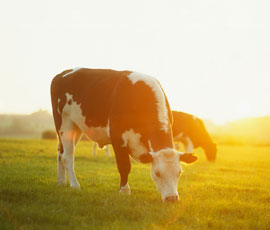Bluetongue vaccination now allowed outside disease areas

Farmers will be able to vaccinate their animals to protect them from bluetongue in areas which are disease free, under new EU rules.
The regulations, which come into force on Friday (24 August), mean farmers can make decisions about whether they want vaccinate their stock to protect them from bluetongue in case of a future outbreak.
Previously, only animals in disease areas could be vaccinated.
DEFRA announced the changes this week, which come after extensive lobbying by the NFU to give farmers the freedom to vaccinate their animals whenever they wished.
Bluetongue, a highly infectious viral disease spread by midges, can be fatal to animals such as sheep and cows.
The disease spread to the UK in 2007, but it was wiped out following an emergency vaccination campaign the following year.
DEFRA said the risk from Bluetongue was “very low”. A spokesman added: “Since the Bluetongue outbreak in 2007-08, we have introduced stringent checks to make sure that animals imported into the country are free of the disease.
“We also have plans in place to deal with the disease if it ever came back into the country, such as movement restrictions which would be employed in the event of a case being identified.”
DEFRA spokesman
“We also have plans in place to deal with the disease if it ever came back into the country, such as movement restrictions which would be employed in the event of a case being identified.”
The UK was officially declared bluetongue disease-free on 5 July last year, meaning producers could no longer protect their animals against the disease as the old legislation did not allow vaccination within a free zone.
Earlier this month, Peter Mertens, head of vector-borne diseases at the Institute for Animal Health, Pirbright, Surrrey, said the vaccination programme against bluetongue in the UK had been “a major success story”.
However, Prof Mertens warned that the Schmallenberg virus, a new livestock disease discovered last year that is also spread by midges, could return to the UK this coming season.
A Schmallenberg vaccine is being developed, but it is unlikely that it will be ready for use before next year.
See our page on the Schmallenberg virus
Philip Case on G+